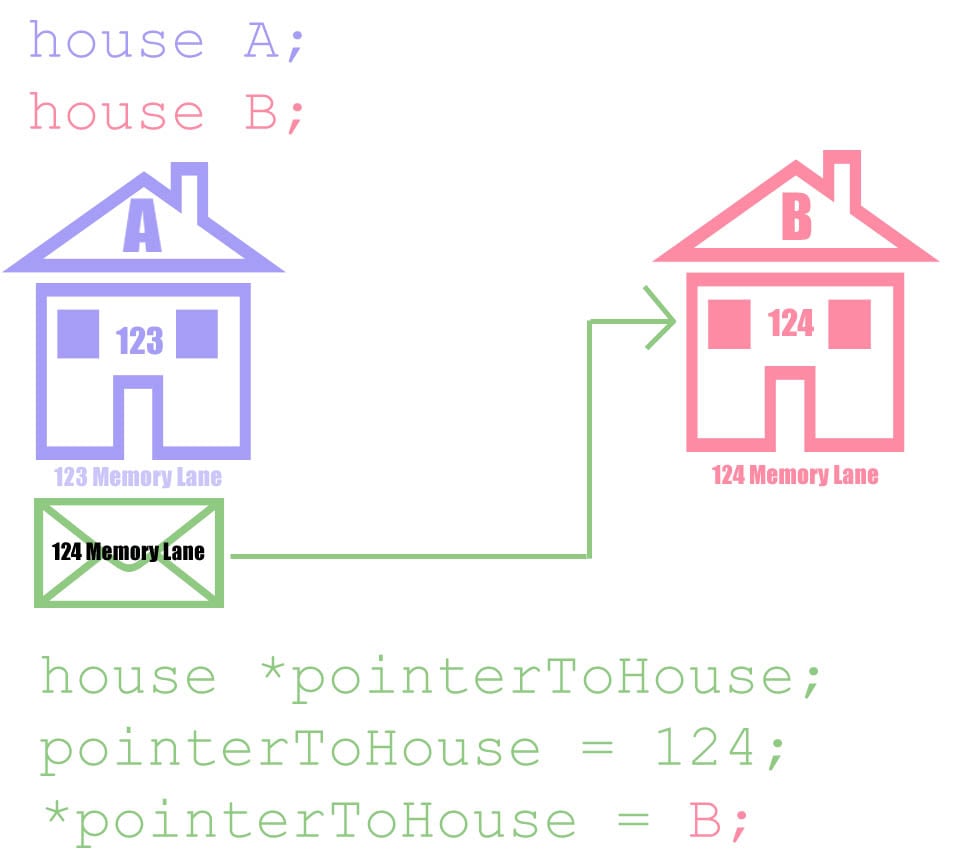i am confused by pointers. How do we know the type the pointer points? Is it compiler specific? how do we implement delete[]? Are there any books or articles about this topic? Wait for your replies.
panpanf
0
Newbie Poster
Recommended Answers
Jump to Post>>How do we know the type the pointer points?
You have to declare the data type when the pointer is created.int* iPointer;>>Is it compiler specific?
No. Pointers are defined by C and C++ standards, so all compilers comply.
Jump to PostHere's a silly little illustration I drew just now:
All 6 Replies
Ancient Dragon
5,243
Achieved Level 70
Team Colleague
Featured Poster
William Hemsworth
commented:
:)
+4
Alex Edwards
commented:
Though I know it's not your style, it would've been funnier if you said "GIYF" =P
+4
chococrack
74
Junior Poster
Alex Edwards
commented:
Nice picture =)
+4
Sky Diploma
571
Practically a Posting Shark
panpanf
0
Newbie Poster
grumpier
149
Posting Whiz in Training
grumpier
149
Posting Whiz in Training
Be a part of the DaniWeb community
We're a friendly, industry-focused community of developers, IT pros, digital marketers, and technology enthusiasts meeting, networking, learning, and sharing knowledge.

